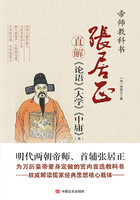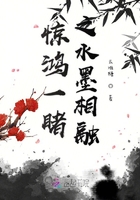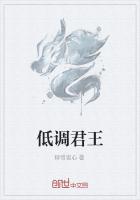It is not possible to know forthwith whose head or hand is meant. Thus these are not relatives, and, this being the case, it would be true to say that no substance is relative in character. It is perhaps a difficult matter, in such cases, to make a positive statement without more exhaustive examination, but to have raised questions with regard to details is not without advantage.
By "quality" I mean that in virtue of which people are said to be such and such.
Quality is a term that is used in many senses. One sort of qualitylet us call "habit" or "disposition". Habit differs from disposition in being more lasting and more firmly established. The various kinds of knowledge and of virtue are habits, for knowledge, even when acquired only in a moderate degree, is, it is agreed, abiding in its character and difficult to displace, unless some great mental upheaval takes place, through disease or any such cause. The virtues, also, such as justice, self-restraint, and so on, are not easily dislodged or dismissed, so as to give place to vice.
By a disposition, on the other hand, we mean a condition that is easily changed and quickly gives place to its opposite. Thus, heat, cold, disease, health, and so on are dispositions. For a man is disposed in one way or another with reference to these, but quickly changes, becoming cold instead of warm, ill instead of well. So it is with all other dispositions also, unless through lapse of time a disposition has itself become inveterate and almost impossible to dislodge: in which case we should perhaps go so far as to call it a habit.
It is evident that men incline to call those conditions habits which are of a more or less permanent type and difficult to displace; for those who are not retentive of knowledge, but volatile, are not said to have such and such a "habit" as regards knowledge, yet they are disposed, we may say, either better or worse, towards knowledge.
Thus habit differs from disposition in this, that while the latterin ephemeral, the former is permanent and difficult to alter.
Habits are at the same time dispositions, but dispositions are not necessarily habits. For those who have some specific habit may be said also, in virtue of that habit, to be thus or thus disposed; but those who are disposed in some specific way have not in all cases the corresponding habit.
Another sort of quality is that in virtue of which, for example, we call men good boxers or runners, or healthy or sickly: in fact it includes all those terms which refer to inborn capacity or incapacity. Such things are not predicated of a person in virtue of his disposition, but in virtue of his inborn capacity or incapacity to do something with ease or to avoid defeat of any kind. Persons are called good boxers or good runners, not in virtue of such and such a disposition, but in virtue of an inborn capacity to accomplish something with ease. Men are called healthy in virtue of the inborn capacity of easy resistance to those unhealthy influences that may ordinarily arise; unhealthy, in virtue of the lack of this capacity. Similarly with regard to softness and hardness. Hardness is predicated of a thing because it has that capacity of resistance which enables it to withstand disintegration; softness, again, is predicated of a thing by reason of the lack of that capacity.
A third class within this category is that of affective qualities and affections. Sweetness, bitterness, sourness, are examples ofthis sort of quality, together with all that is akin to these; heat, moreover, and cold, whiteness, and blackness are affective qualities. It is evident that these are qualities, for those things that possess them are themselves said to be such and such by reason of their presence. Honey is called sweet because it contains sweetness; the body is called white because it contains whiteness; and so in all other cases.
The term "affective quality" is not used as indicating that those things which admit these qualities are affected in any way. Honey is not called sweet because it is affected in a specific way, nor is this what is meant in any other instance. Similarly heat and cold are called affective qualities, not because those things which admit them are affected. What is meant is that these said qualities are capable of producing an "affection" in the way of perception. For sweetness has the power of affecting the sense of taste; heat, that of touch; and so it is with the rest of these qualities.
Whiteness and blackness, however, and the other colours, are not said to be affective qualities in this sense, but -because they themselves are the results of an affection. It is plain that many changes of colour take place because of affections. When a man is ashamed, he blushes; when he is afraid, he becomes pale, and so on. So true is this, that when a man is by nature liable to suchaffections, arising from some concomitance of elements in hisconstitution, it is a probable inference that he has the corresponding complexion of skin. For the same disposition of bodily elements, which in the former instance was momentarily present in the case of an access of shame, might be a result of a man"s natural temperament, so as to produce the corresponding colouring also as a natural characteristic. All conditions, therefore, of this kind, if caused by certain permanent and lasting affections, are called affective qualities. For pallor and duskiness of complexion are called qualities, inasmuch as we are said to be such and such in virtue of them, not only if they originate in natural constitution, but also if they come about through long disease or sunburn, and are difficult to remove, or indeed remain throughout life. For in the same way we are said to be such and such because of these.
Those conditions, however, which arise from causes which may easily be rendered ineffective or speedily removed, are called, not qualities, but affections: for we are not said to be such virtue of them. The man who blushes through shame is not said to be a constitutional blusher, nor is the man who becomes pale through fear said to be constitutionally pale. He is said rather to have been affected.















